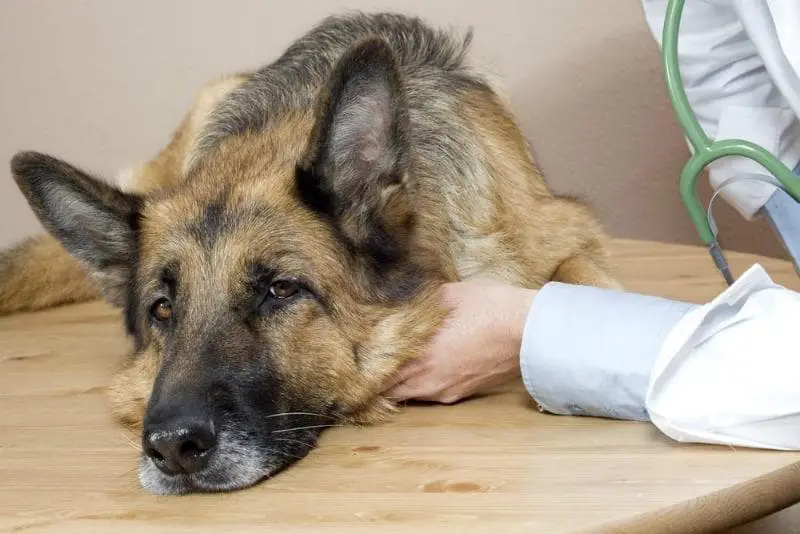Did you know that dogs are considered a senior between 7 to 10 years of age?
Dogs mature faster than humans, and large breed dogs age quicker than their smaller counterparts.
Genetics, diet, and environmental conditions will also play a role in how quickly a dog ages.
Health-related issues due to age can occur quickly in dogs. Animals can be very good at hiding signs of illness and weakness, which means a health condition may seem to appear suddenly almost overnight.
The good news is that you can significantly improve your senior dog’s quality of life and longevity by watching for signs of potential age-related health problems.
The following five age-related problems are health concerns to watch for as your dog ages.
1. Hearing and Vision Health Concerns
Hearing and vision loss is common for humans and dogs as we age.
Older dogs may develop cataracts, which are best described as a cloudy layer over the eye’s lens.
Cataracts can cause partial or total blindness but can be surgically removed depending on your dog’s age, health, and severity of the cataract.
Tissue degeneration in the ears contributes to hearing loss. Nothing can help or reverse hearing loss in dogs and is just considered a part of the aging process.
Dogs consistently exposed to loud noises, such as gunfire, may lose their hearing sooner than dogs in a quieter environment.
2. Joint Pain and Arthritis Health Concerns
Joint pain and arthritis have similar symptoms.
The difference between them is the pain from arthritis is from inflammation in the joint versus joint pain resulting in pain without inflammation.
The most common source of joint pain in dogs is developmental issues, like hip or elbow dysplasia, and degenerative problems such as osteoarthritis, which is the deterioration of cartilage over time.
It is common for younger dogs with joint pain to develop arthritis as they age.
Dogs suffering from joint pain or arthritis may limp, have stiffness in joints, have trouble getting up from a down position, climbing stairs, jumping, or walking prolonged distances.
3. Kidney Disease Health Concerns
The function of the kidneys may decrease as a dog ages. Medications used to treat other age-related ailments can cause issues with the kidneys.
Chronic kidney failure cannot be cured, so owners must know the signs to look for to catch the disease early and manage it properly with your veterinarian.
The symptoms of kidney disease are weight loss, tiredness, vomiting, loss of appetite, frequent drinking, and urinating.
If your older dog is experiencing any of the above symptoms, blood work can confirm or rule out kidney disease.
4. Obesity Health Concerns
Weight affects your dog’s overall health and mobility, and this is especially true as your dog ages and becomes less active.
An older dog carrying extra weight is more vulnerable to diabetes, heart disease, high blood pressure, difficulty breathing, certain cancers, skin problems, joint issues, and arthritis.
5. Behavioral Problems
Aging dogs begin to deteriorate physically and mentally.
Dogs are unable to express what is happening to them verbally. It’s up to owners to notice uncharacteristic behavior changes that may signal our senior dog is in pain or declining mentally.
Examples of behavior you would not consider normal for your dog may be aggression, vocalization, disorientation, anxiety, withdrawal, whining, pacing, no interest in food or toys, and incontinence.
If your dog shows any of the above signs or symptoms, you should schedule an appointment with your trusted veterinarian.
Even if your old dog seems to be healthy, a senior wellness exam can catch something in the early stages or give you the peace of mind that your best friend is symptom-free from age-related diseases.
Most vets recommend a complete physical examination every six months, along with routine testing once a year to help detect diseases and conditions early when they are easier to treat.
Work together with your veterinarian to keep your four-legged friend’s golden years happy and healthy!
When your senior dog is in poor health how do you know when it’s time to let your best friend go? Learn more here ==> 10 Signs Your Dog May Be Ready to Cross the Rainbow Bridge

























